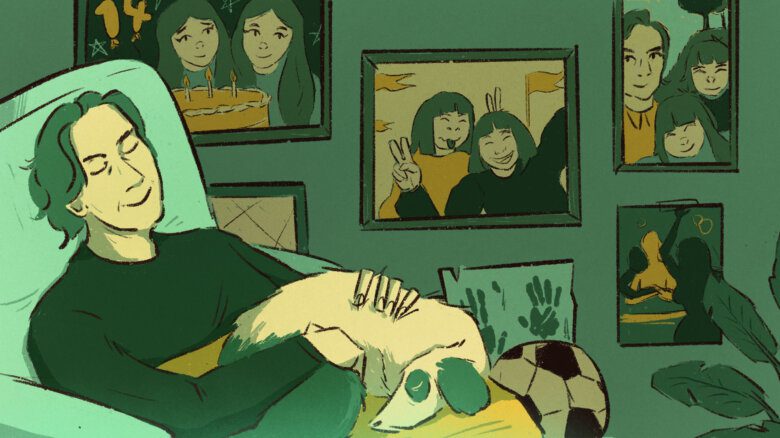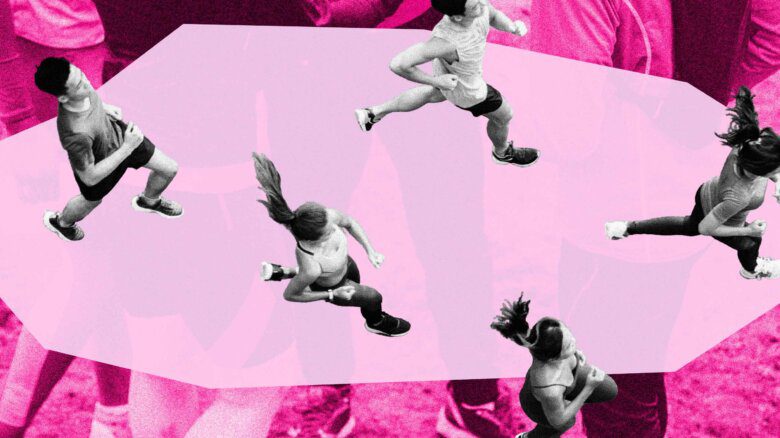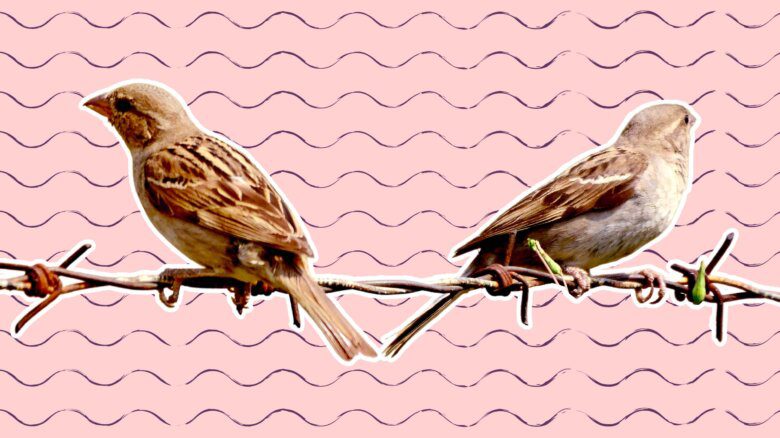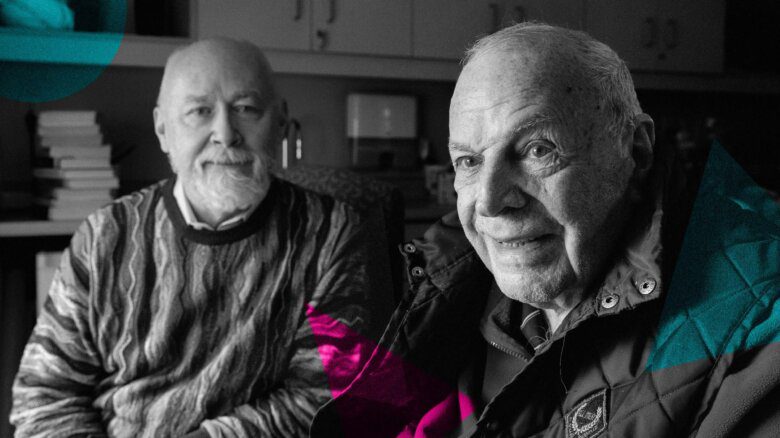I have always lived with one foot still in the closet.
I came out to my friends when I was around 19 and dated my first girlfriend. At the same time, I still haven’t mustered up the courage to come out to my Russian parents, even 10 years after coming out. Born in the Russian Federation, I’ve lived in Toronto since I was six, and have spent the last decade dodging questions from my grandparents (still in Russia) about why I don’t have a boyfriend yet. I don’t have the strength to tell them, despite being in a relationship with my partner C for the last five and a half years. All relationship milestones involving families have been largely one-sided, as I stay enshrouded in secrecy, out only to my friends, hiding from my family.
When I temporarily left the comfort of Toronto to work as an English teacher in South Korea (I had a desperate need to travel, and C indulged me) in August 2021, I thought C and I would be fine with long distance. Our relationship was strong—we lived together, and had grown closer. Sure, it would suck, but there was an end date in sight; my stint in Korea was supposed to last just one year. The relationship we had so carefully fostered over was its own entity, and if we continued to water and work on it, it would grow.
Spoiler alert: It did.
This is not a story about the pain of long-distance relationships or a piece with advice on staying together, or an Eat Pray Love-style tale of finding myself and breaking up. If I’m being honest, long distance is rough and I don’t recommend it. We survived, but it was challenging.
Instead, this is a story about being queer and moving abroad, about not knowing who to trust and having no one to turn to. It’s about a special kind of loneliness—not just within a long-distance relationship, but a total loss of community.
“I couldn’t make gay jokes that people would get. My camp and pop culture references—brilliant amongst my old circle—were lost.”
When I moved to Korea, I lived in south-central and hyper-conservative Daegu, a city of about 2.5 million people. Upon arrival, I immediately fell back into the closet. I had to start from the beginning—new job, new friends, new city, new apartment and, most importantly, new culture, all in a country with no anti-discrimination laws. My cushy and queer Toronto existence was a thing of the past. I was a visible foreigner in a country with a totally different rule system. I no longer had a group of wide and varied queer friends. I couldn’t just go to a drag show any time. Despite the burgeoning queer scenes in northern capital Seoul and beachy Busan, Daegu was severely lacking. I couldn’t make gay jokes that people would get. My camp and pop culture references—brilliant amongst my old circle—were lost. My loneliness, a new companion, took on the shape of the blank, masked faces of the people around me.
The foreigner community in Daegu is small, and largely made up of expat English teachers like myself or people in the American military. When socializing, I followed others’ leads; my new friends and coworkers didn’t betray any signs of queerness, so I kept my secret to myself.
I have a stereotypically feminine appearance, with long, dark brown hair. The false nails and lashes attached to my body extend my reach, helping me take up more space. Many people, even fellow queers, would not immediately read me as a lesbian. I was afraid to come out. As a femme person, I must come out again and again, every time bracing myself to be criticized and disbelieved. It becomes exhausting and it’s something I avoid. I find myself worried that once people, especially men, find out I’m gay, they’ll want to stop being my friend, or turn violent or hateful toward me. In Korea, if I talked about being in a long-distance relationship, I referred to C as my partner. When asked outright by a coworker why I didn’t say “boyfriend,” I switched to that term periodically, loathing the lie, feeling like I couldn’t push the “partner” thing too much around fellow teachers and military friends who “didn’t believe” in transgender folks and thought abortion should be illegal.
I didn’t realize how important my queerness was to me until I was forced to shove it to the side. I didn’t realize how crucial it was to my happiness to be open until I had to reel everything in. I had always felt like if you felt unsafe coming out, then you shouldn’t. Though I had remained in the closet with my family for specific reasons, doing so in Korea felt different. I felt like I was going backward, undoing all the work I had taken to build a queer identity and community in Toronto.
“C and I FaceTimed frequently. The love felt stronger than ever. Despite the loneliness, this was one of the healthiest things we’ve ever done.”
Only one of my new pals was queer, and she, too, was stuck pretending to be someone else to ease life in Korea. We’ll call her Sarah. She was also a foreign teacher, but in a different school, with a much more lax schedule than mine. Her multiple days off during the week, she said, were a large part of the reason she had been able to remain living in Korea for so long (nearly five years) while being closeted at work the whole time. Still, she too was trying to leave, having had enough of hiding her identity, and wanting the freedom she deserved.
Sarah was a welcome friend and a wonderful companion, but not the same as the whole friend group I had relied on back in Toronto. She could not fill multiple roles, though our friendly coffee dates together soothed an ache; it felt nice to have a friend I could talk to about C, someone I could just be known around, to be seen exactly as I was: a lonely little lesbian trying to cope with both a long-distance relationship and the shock of having to hide my identity again.
Regarding our long-distance relationship, C and I FaceTimed frequently, and, at times, the love felt stronger than ever. Despite the loneliness, this was one of the healthiest things we’ve ever done. During the pandemic, both of us shifted our values and goals, and changed a lot. We switched directions in our careers, and we both agreed that the time and space apart, while inevitably painful, would also be good for us. We could meet ourselves again, and reunite in a year’s time with some new perspectives.
Sarah told me about a queer-focused Kakao chat group (Kakao being Korea’s main social platform) for women and non-binary folks, which served as a sweet digital refuge for gay news and jokes. I was delighted to have found the online space, even though most of the people in it lived in Seoul, three hours away from me. The occasional meetups in the group were out of reach for me, but I was soothed by the knowledge that they existed at all, that there were more of me, closeted, and often miserable, but also united. Most of us cowered in the same boat, hiding our identities from new friends and coworkers.
“After a particularly brutal work week, I called in sick on a Friday, only to be unceremoniously (and illegally) fired.”
The Kakao chat was helpful in some ways. I missed C, but, more than anything, I missed being able to miss C openly, to lament about long distance with friends, to share funny anecdotes about our relationship without mentally checking myself and changing pronouns as I talked. Living in Korea can come with a price; despite its reputation for being one of the safest countries in the world, it is not much of a haven for some.
C and I had talked about relocating to South Korea. Was I naive to think we could live there? Many queer people do. But it was not enough for me to be free culturally. After a particularly brutal work week, I called in sick on a Friday, only to be unceremoniously (and illegally) fired. I decided the end was here; midway through the year-long work contract, I flew out of Incheon International Airport to Doha, making my way in stages back to Toronto to reunite with C.
Together, we flew to Mexico, to Puerto Vallarta, choosing to stay in the Romantic Zone, a place renowned for its queerness, a place where we could, fearlessly, hold hands, an action so small and seemingly harmless that I had forgotten the power it could carry.
In the end, Korea was not for me. But just like this piece isn’t about my long-distance relationship, it also isn’t about Korea as a place to live. It’s about comfort, connection and community. It’s about a sense of belonging when leaving everything you know. My biggest takeaway from this experience is this: I need queerness around me more than I realized.
As RuPaul often says, “as queer people, we get to choose our family.” Yes, we do, but it definitely helps if at least some of that chosen family can be queer, too. Sure, there are always allies—I was lucky to find some in Daegu—but I think that only a queer person can understand the pains of another queer person.
C and I want to leave Toronto eventually. After this experience, I know what we must look for when we go: a place with a thriving queer community, a place that is known to not just be accepting, but welcoming. C is a masc-presenting butch woman. Whereas I can hide in the crowd, C doesn’t have that option, and we need a place where we can simply be ourselves without worry or concern. When we move, we know now we need to look for a safe place.
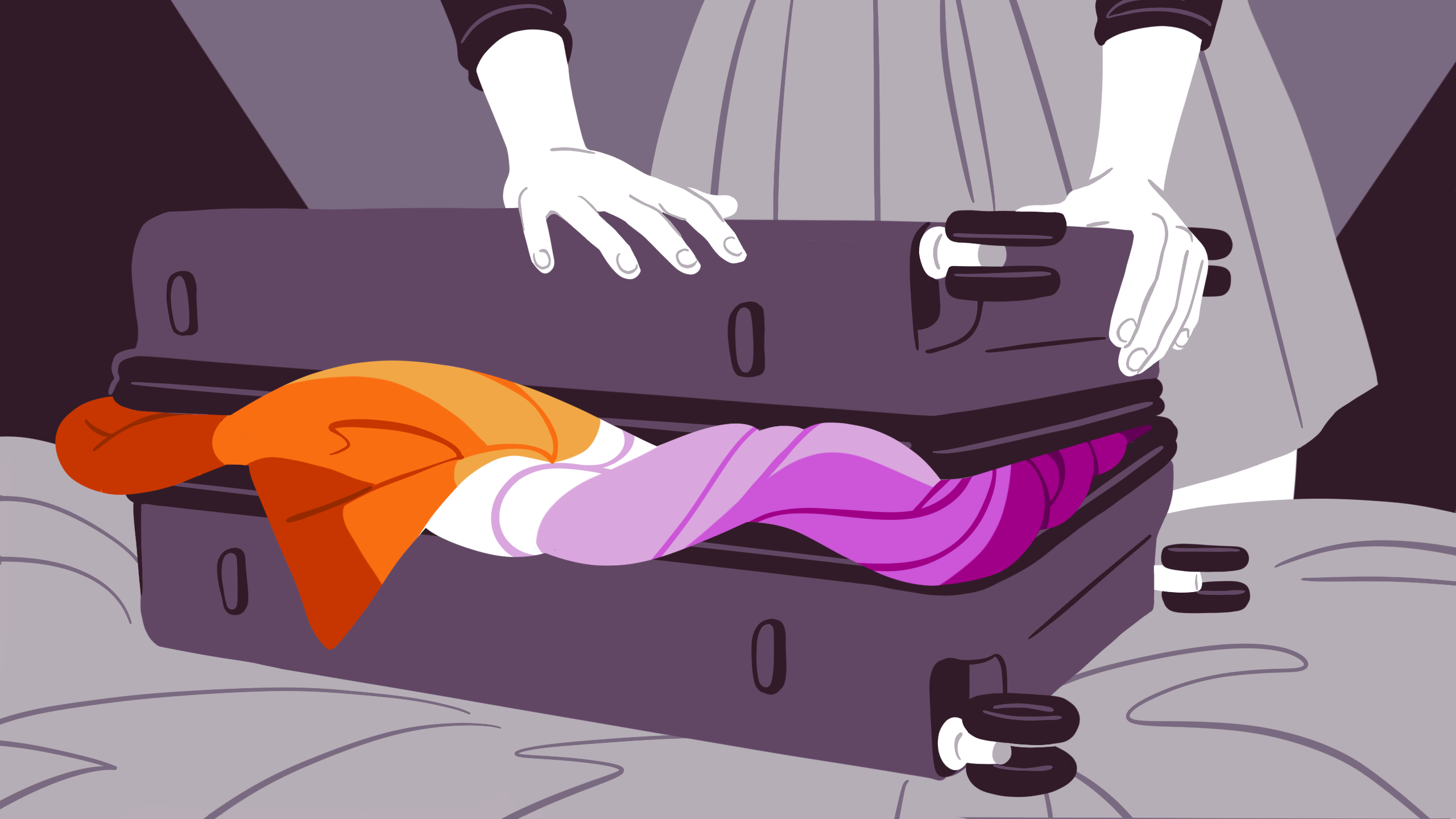

 Why you can trust Xtra
Why you can trust Xtra